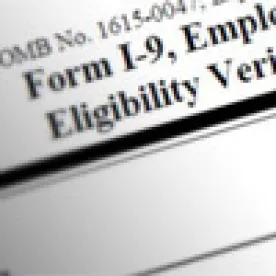A recent Second Circuit ruling marks the latest occurrence of a trend in federal court cases granting standing to beneficiaries in suits to challenge USCIS’ decisions, paving the way for more lawsuits against the agency following denials of petitions or appeals.
The idea that only a petitioner may challenge a petition in federal court is now being chipped away. Under the agency regulations[1], appeals of decisions to administrative bodies – such as to the AAO or BIA – may not be filed by a beneficiary. Some courts, accepting the Department of Justice’s oft-advocated position, held that this regulation would also strip a beneficiary’s standing to void an agency denial in federal court through a declaratory judgment or remand action.
But can such a regulation really extend to the federal courts, where the Supreme Court’s Lujan precedent[2] establishes that constitutional standing applies once a person demonstrates (1) an injury‐in‐fact; (2) that is fairly traceable to the challenged conduct of the defendant, and (3) can likely be redressed by a favorable decision by the district court?
In a published opinion on Dec. 30, 2016, in Mantena v. Johnson, the Second Circuit held that the regulation does not apply to bar a beneficiary to be a plaintiff in federal court. Ms. Mantena was an H-1B and I-140 beneficiary who had changed employers pursuant to the AC21 statute while her Green Card application was pending. Her previous employer had pleaded guilty to mail fraud regarding a different petition and USCIS revoked all of its approved petitions. Ms. Mantena was unaware of this development until her I-485 was denied. The district court, following an unsuccessful USCIS appeal, sided with the government and dismissed her claims for a lack of jurisdiction. On appeal, the Second Circuit disagreed, finding that she met the standing requirements to bring a suit.
In so doing, the court went a step beyond a recent Third Circuit case, Shalom Pentecostal Church.[3] One of the issues in Shalom was a similar standing argument brought by the government that the pastor-beneficiary was unable to challenge a denied EB-4 petition in federal court; instead only the church-petitioner could be a plaintiff. While heavily favoring the pastor’s arguments by stating “[T]he cases relied upon by the Government appear limited to the administrative agency context…” the court found that the pastor could nonetheless be a plaintiff because the EB-4 Religious Ministers category allows for self-petitioning.
As this interesting area of case law continues, one can expect to see more petition beneficiaries willing to litigate the standing issue alongside, or potentially independent of, their petitioners.
[1] 8 C.F.R. § 103.3(a)(1)(iii)(B).
[2] See Lujan v. Defenders of Wildlife, 504 U.S. 555, 560‐61 (1992).
[3] Shalom Pentecostal Church v. Acting Secʹy U.S. Depʹt of Homeland Sec., 783 F.3d 156 (3d Cir. 2015). In the interests of disclosure, I served as counsel pro hac vice in the underlying U.S. District Court case while employed at a former firm. There we were also successfully able to argue that the regulation did not preclude the beneficiary from being a party to the suit. See Shalom, 2013 WL 162986, at *3-4.


 />i
/>i

